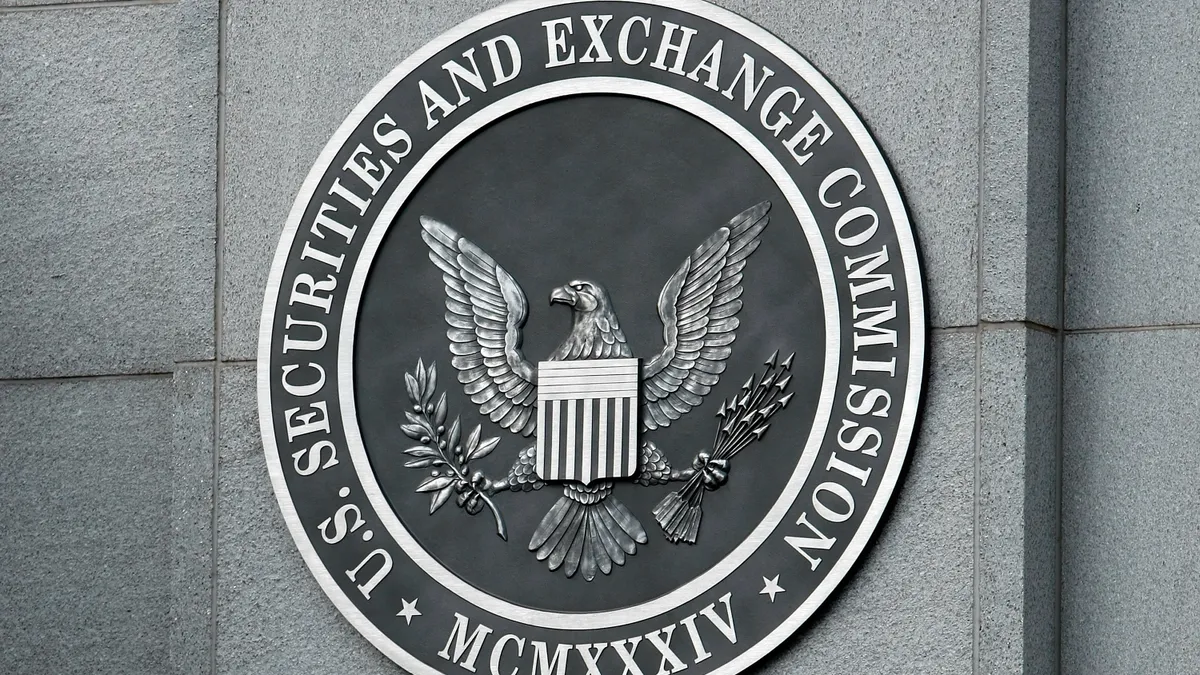Banks may have unwittingly solved a nagging question for anyone who has waited until the calendar turns to August to take that overdue vacation: What fills that summer reading list?
They may not deliver the taut intrigue of a cat-and-mouse spy thriller, but for stat geeks, the 10-Q filings that financial institutions made last week with the Securities and Exchange Commission are no less satisfying.
Observers received a sneak peek Tuesday when Wells Fargo said it expects a “significant increase in its risk-weighted assets” as a result of updated capital requirements that regulators floated in late July. It may have seemed at the time that that would be the first of many salvos from banks regarding the revamp. But apart from JPMorgan Chase CEO Jamie Dimon calling the proposed capital requirements “hugely disappointing,” reaction arguably has been relatively muted.
The true numbers game could be found elsewhere in Wells Fargo’s filing — specifically, the estimate that it would pay up to $1.8 billion before tax, as its share of the Federal Deposit Insurance Corp.’s special assessment fee. That’s the portion Wells expects to pay to replenish the deposit insurance fund, which took a $15.8 billion hit from the failures of Signature and Silicon Valley Bank.
Other banks of Wells Fargo’s size laid out their estimates as the week wore on. Bank of America put the figure at $1.9 billion. Citi estimated its share at $1.5 billion. JPMorgan, the largest U.S. bank, said it is gearing up to assume a $3 billion expense.
The hit won’t be as severe for big banks with lesser retail footprints. Goldman Sachs estimated it would pay $400 million. Morgan Stanley, meanwhile, put its share at roughly $270 million. That’s on par with what super-regional banks expect to pay. U.S. Bank, for example, estimated its share Monday at $650 million, while PNC put its figure at $468 million and Truist estimated it would pay $460 million.
Although the FDIC said in May that the assessment fee would be collected over eight quarters beginning in June 2024, a number of banks indicated they would take the charge all at once in the quarter in which the rule is finalized (presumably later this year).
It may make good business sense to resolve the charge sooner rather than later, though observers may wonder whether that’s a symptom of banks already chalking 2023 up as a down year and wanting to isolate losses. One would hope the hit to earnings isn’t used as justification for downsizing — in process at several banks anyway.
MUFG’s higher stakes
Still, special assessment fee estimates weren’t the only big find in last week’s disclosures. U.S. Bank sold 24 million shares to MUFG, raising the Japanese lender’s stake in U.S. Bank to 4.39%. The transaction will cost MUFG $936 million but acts as a debt swap tied to U.S. Bank’s acquisition of Union Bank, owned by MUFG until last year. Proceeds from the sale will pay down a portion of the $3.5 billion U.S. Bank borrowed for the deal.
The Minneapolis-based lender wouldn’t be the only American bank in which MUFG holds a significant stake. It owns roughly 20% of Morgan Stanley.
First Horizon doubles down
Meanwhile, Memphis, Tennessee-based First Horizon is putting more stock in its current leadership — now that it won’t be absorbed by TD.
“Our people are energized,” Anthony Restel, First Horizon’s president of regional banking, told American Banker in June, ahead of its annual shareholder meeting. “Our people are super pumped to be out and deliver for their clients and be active, playing offense again when we haven’t been doing that for the last couple of years.”
CEO Bryan Jordan echoed that, saying the Memphis lender aims to “build a banking franchise in the South that is going to be unparalleled,” adding that First Horizon has “hit the ground running.”
It stands to reason, then, that if the bank is growing its investment in its footprint, it would do the same for its people. First Horizon gave Jordan a new five-year contract Thursday, with a 6% salary boost to $1.125 million and a chance to take home an annual cash incentive approaching $1.7 million, depending on company performance and long-term annual awards above $5 million.
"He navigated the attempted TD merger in a very shareholder-friendly fashion," Brady Gailey, a managing director at Keefe, Bruyette & Woods, told American Banker. "Bryan didn't want to sell the company. But at [a $13.4 billion offer], you have to do what is right."
A contract through 2028 would presumably lock up Jordan, 61, until he retires, and give First Horizon a measure of continuity to execute on its plan.
What’s up with WhatsApp?
To circle back to Wells Fargo, the San Francisco-based lender reported in February that the SEC and Commodity Futures Trading Commission had “undertaken investigations regarding [the bank’s] compliance with records retention requirements relating to business communications sent over unapproved electronic messaging channels.” The bank gave an update Tuesday, adding that it is in “resolution discussions with these agencies.”
Translation: A settlement can be expected soon. This is hardly out of the ordinary. Societe Generale made a disclosure similar to Wells’ this winter. SocGen’s own disclosure last week mirrors Wells’ again — giving fodder to the idea that both banks will be part of the next wave of WhatsApp-related penalties.























